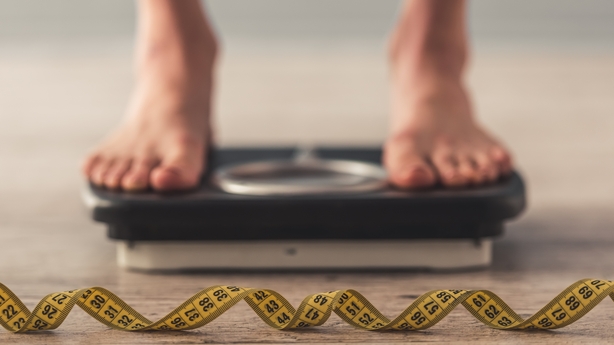Niamh Delmar is a Chartered Registered Counselling Psychologist and provides Psychological Support Workshops to work environments. Here she writes about 'almond moms', bone broth, and disordered eating.
In a recent wellness podcast interview, actress and business-woman Gynneth Paltrow discussed her regime of not eating until noon, having bone broth for lunch then exercising, dry brushing, having a sauna, and rounding this off with an early paleo-based dinner. She was discussing this while hooked up to an IV of vitamins.
The interview went viral and received negative backlash, with some health experts voicing concerns over the promotion of such restrictive eating habits.
In response to the social media pile-on, Paltrow went on Instagram to explain that, since suffering from long Covid, she has been focusing on non-inflammatory foods and also eats full meals.
"By the way, I far more than bone broth and vegetables. I eat full meals. And I also have a lot of days of eating whatever I want and eating French fries and whatever. But my baseline really has been to try to be healthy and to eat foods that will really calm the system down."
Some feel this internet onslaught is unfair as Paltrow’s lifestyle only echoes the practices of many Hollywood A-listers, celebrities and influencers. Celebrity diets and exercise programmes disguised as wellness routines have a significant impact, especially on young people. A highly restrictive diet presented as healthy eating is dangerous.
References to ‘almond moms’ also resurfaced among this recent social media offensive. The term refers to mothers or significant adults who push diet culture and extreme, so-called ‘healthy’ regimes onto their children. While intentions may be well-meaning in encouraging healthy eating, their policing of food is too extreme.
Carbs and sugar may be banned, treats off limits, and other food types not permitted. There may be intense pressure to exercise and overt or subliminal messages that any weight put on is bad. Being thin is highly valued and body fixation may be evident.
These extreme ‘healthy’ messages can be internalised by children and can lead to a negative relationship with their bodies and food. Such parents associate their children’s eating habits and weight with good parenting.
TikTok is flooded with millions of views and stories of almond-mom experiences and the damaging impact.

Disordered eating constitutes behaviours that lie on the spectrum between normal eating and an eating disorder. Dieting is one of the most common forms and it may include restrictive, inflexible or irregular eating patterns.
Restrictive practices can result in binge eating, physical ill health, depression, irritability, anxiety, and diminished coping abilities. Social withdrawal and low self-esteem may be another fallout. Disordered eating patterns are among the most common risk factors for developing an eating disorder. Research has found that adolescents who engage in dieting are five times more at risk of developing an eating disorder than those who do not diet.
Eating disorders are severe and can be life-threatening or fatal. The World Health Organisation and the American Psychiatric Association recognise these as mental health disorders. According to the Mayo Clinic, the associated behaviours impact daily functioning, emotional well-being and health.
The most common disorders are anorexia nervosa, bulimia nervosa and binge-eating disorder. The causes of eating disorders are multifaceted with the onset most frequently surfacing in adolescence. This can be a vulnerable period of development when many young people live in a digital world and are influenced by peers, celebrities and social media.
Often, behaviours are hidden from others or disguised as ‘clean eating’ or self-diagnosed allergies to certain food types. According to the Health Research Board, in July 2021 there was a 61% increase for admissions for children and adolescents compared to 2019 in this country.

The ideal way is to have a healthy relationship with food and with your body. Anything extreme or obsessional will have negative consequences. We need to question what is being presented as ‘healthy’.
While there are many contributing factors to disordered eating and disorders, societal influences are evident. Social media is saturated with beauty ideals. Photo-based posing and intense emphasis on appearance and the body is rife. Excessive use of social media in this way has been associated with an increase in disordered eating related thinking and behaving. Algorithms then further bombard such user types with more extreme diet and exercise regimes.
Comparisons with others and wanting to be or look like someone else leads to distress. A constant scrutiny and admiration of others’ bodies leaves people feeling bad about theirs. When people try to emulate celebrities, it is never an even playing field. Apart from elaborate photoshopping, they have abundant resources including wealth, private gyms, personal trainers, personal chefs, top-of-the-range regular treatments, aesthetics and more.
Actor and body positivity campaigner Jameela Jamil has called out the extreme thinness and drastic weight loss seen at the recent Oscars. She accused some celebrities for using weight-loss injections. It highlights the desire to look thin, toned and ageless.
Thin culture is re-emerging with waif-like looks and hollowed cheeks. Kim Kardashian, who had been praised for embracing her curves, opened up to dropping 16 pounds in just three weeks to fit into Marilyn Monroe's dress for the 2022 Met Gala.
Body transformations are noticeable among all genders. Being thin is often associated with being successful, wealthy and happy. And yet this is one of our society’s greatest myths. Superficiality seems to be out numbering body activism and acceptance.
To protect the susceptible and younger cohort, the emphasis needs to be on developing a stable sense of self, limiting exposure to digital thin imagery and fostering a healthy relationship with food. Being social media savvy and having a wide variety of interests and activities can be protective.

Children internalise the familial value system with regard to food, weight and appearance. Throughout adolescence, the tendency is to be influenced more by peers, social media and societal factors.
Practising ‘body neutrality’ is helpful to shift the focus from weight. This involves accepting your body, banning negative body-talk and promotes nourishing and caring for your body with nutrition, rest, hydration and care.
While social media, thin culture and the influence of celebrities are just some of the contributing factors to disordered eating, it is becoming more significant, especially for adolescents spending hours daily in that part of the digital world.
If you have been affected by issues raised in this story, please visit: www.rte.ie/helplines.
The views expressed here are those of the author and do not represent or reflect the views of RTÉ.


